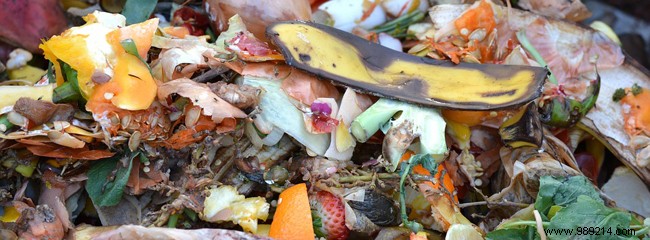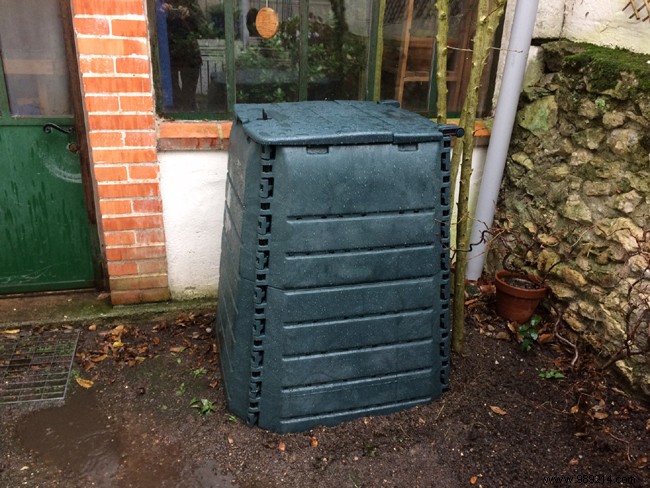A composter allows you to reuse your waste and turn it into compost for your plants. However, not all waste makes good compost. To help you sort, here is a list of waste to use or discard.
Among the leftovers from your kitchen, here is the green waste that you can put in the compost. Damaged vegetables and fruits as well as their peelings, tea bags, coffee grounds, faded flowers from your vases and cut flowers, tree leaves and vegetable garden waste as well as crushed and fresh hedge trimming . It is advisable to cut fruits and vegetables into pieces, grind wood waste and remove staples from tea bags.
Grass clippings go into the compost but in small quantities because, due to their compact shape, they can suffocate the compost. The skins of organic citrus fruits, onions, garlic and rhubarb leaves can be put in the compost:they decompose quickly and do not acidify the compost if you do not put in large quantities and especially if you also put eggshells and a little ash. As the skin of citrus fruits dries out quickly, do not use any that are dry except after having re-moistened them.

Paper towels, food cartons and tissues can go in the compost. You can also put other papers without color printing there. If your compost is dry, don't forget to wet them beforehand or to water your compost a little after putting the papers in it. Tree bark as well as straw and hay are well suited for compost. If you have eggshells, crush them before putting them in the compost, but avoid putting the dried fruit shells. Pine needles and weeds from your garden can get into the compost as well as fingernails and hair.
There are other wastes that you can put in the compost, such as leftover meals containing pasta, rice and bread. Cooled ashes can also be poured in, as can sawdust and untreated wood shavings.

The rest of the meals such as pieces of cooked meat and fish, cheese crusts, bones and fish bones should not be put in the compost, or else in very small quantities because they risk attracting rodents and generating a bad smell to the compost. Shells do not decompose, even if they bring calcium to the compost, they are excluded. Dairy products and dairy products do not go into the compost, nor do fatty products such as frying oil and fats which asphyxiate the compost.
Also avoid cat litter, anything that is pet waste, because there is a risk of pathogenic germs. Garden waste such as ivy, bindweed, which are creeping plants and plants - weeds or not - gone to seed are not good for compost as well as any diseased or pesticide treated plants because there is risk of contamination. Of course, all non-biodegradable elements are to be banned, such as vacuum cleaner dust, cigarette butts, gravel and leftover charcoal from barbecues.